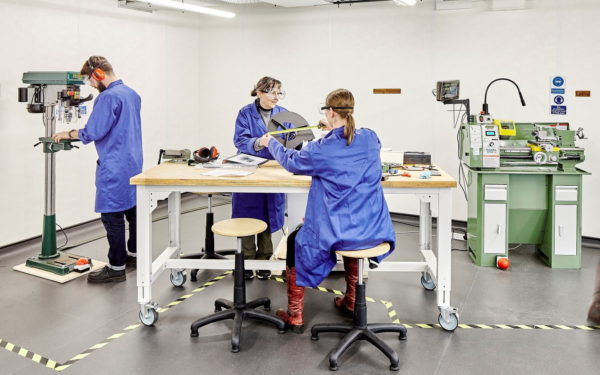
It is not plastics, it is people

To mark Plastic Free July, TEDI-London Dean and CEO, Professor Judy Raper, explains why we need to avoid demonising plastic itself, but instead put the scrutiny on the designers and engineers and ensure they have the right skills to understand the potential impact of their products.
We’re coming to the end of “Plastic-free July”, a worthy initiative aimed at highlighting the disastrous consequences of waste materials that persist in the environment for many years. But we risk “throwing the baby out with the bathwater” by the simplifications used to garner widespread support. We should be talking about the life cycle of plastics and the adverse effects of “single-use plastics”, rather than creating blind fear of a technology that is positive when applied appropriately.
Since the invention of Bakelite in 1907, plastics have been responsible for saving millions of lives through their use in medical devices, transportation and food preservation. The COVID-19 pandemic has once again highlighted the need for plastic materials to prevent the spread of infection.
So, the enemy is not plastics per se, but the way plastics have been used.
The engineers and scientist inventors of this ubiquitous product had no idea of the consequences of their innovations. And that is down to the education system and how siloed each discipline has become.
This particularly applies to engineering, where the profession has a particularly poor record of considering the social implications of the innovative products they developed. Indeed, engines themselves are one of the greatest examples of ground-breaking engineering products with adverse social side-effects. While the inventors themselves perhaps might not have predicted it, air pollution had become one of our greatest global challenges. Even innovations to address air pollution, such as electric cars, have unexpected social impacts – the visually impaired are struggling to hear them and there have been several near misses involving visually impaired pedestrians and electric cars.
So, what is the lesson? No matter what the innovation, there will always be a social impact with a new product or design – think of the mobile phone – what a social impact that has made with many families now enforcing phone free dinners and mobile free movie nights. So, the job of the engineers of the future is to consider these negative impacts at design stage and help determine how to either mitigate or educate against them. Imagine if the inventors of plastic had considered the life span of their product and how it would impact our environment?
The problem lies in how our inventors have been taught. Traditionally engineering programmes have been highly focused on technical competence in Mathematics, Physics and Chemistry with some small emphasis on business, but with little understanding of human behaviour.
As a community of professionals, we have been talking about the shortcomings of engineering education for more than two decades.
Industry representatives have lamented the lack of ability of graduate engineers to contextualise solutions. That is at the crux of the plastics debate today.
To address this, we will develop “T-shaped” engineers who have a long depth of knowledge in their chosen discipline, yet also have a broad skill set that covers a wide understanding of the social, environmental and economic impacts of the solutions they design and build. Using the knowledge from the mistakes of the past, our graduates will thus be better equipped to develop truly innovative solutions for the future, each with a more positive legacy, and image, than that of plastic.
More News articles


Introducing girls to engineering
